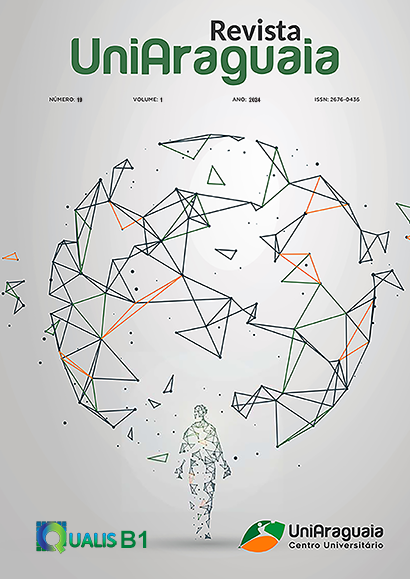USO DAS METODOLOGIAS ATIVAS COMO FERRAMENTA DE ENSINO-APRENDIZAGEM APLICADAS NA EDUCAÇÃO EM SAÚDE
Keywords:
Educação, Saúde, Metodologias Ativas.Abstract
O presente estudo tem como objetivo realizar uma pesquisa bibliográfica do tipo narativa, acerca dos temas: Educação, Saúde, Metodologias Ativas, sua importância e aplicabilidade no processo de ensino-aprendizagem e no aperfeiçoamento profissional da área da educação em saúde. A metodologia adotada consistiu na busca de materiais impressos e no formato eletrônico relacionados à temática: Educação, Saúde e Metodologias Ativas como instrumento de trabalho e capacitação profissional. A coleta do material ocorreu no período de janeiro a julho de 2022. A pesquisa bibliográfica foi realizada em duas etapas. A primeira fase do estudo iniciou-se com a seleção dos descritores, da área da saúde, definidos conforme a lista DeCS, os quais foram: "Education"; "Health" e "Active Methodologies", associados aos descritores "Language and Hearing Sciences" com o intuito de otimizar a especificidade das publicações. Foram selecionados portais de busca: Portal da Biblioteca Regional de Medicina (BIREME) e a Coordenação de Aperfeiçoamento de Pessoal de Nível Superior (CAPES). Os bancos de dados utilizados foram: Literatura Latino-americana e do Caribe em Ciências da Saúde (LILACS), Medical Literature Analysis and Retrieval System Online (MEDLINE) e Índice Bibliográfico Espanhol em Ciências da Saúde (IBECS), para captação dos periódicos utilizados no estudo. Assim como também foram utilizadas as bases de dados da Scientific Electronic Library Online (Scielo) e do Google Acadêmico. Conclui-se ratificando que as metodologias ativas de ensino-aprendizagem, na área da educação em saúde, estão sendo incluídas e discutidas na literatura nacional e internacional cujo propósito é de contribuir com a formação teórica e prática profissional.
Downloads
Published
Issue
Section
License
Copyright (c) 2024 REVISTA UNIARAGUAIA

This work is licensed under a Creative Commons Attribution 4.0 International License.
The copyright of the published articles will be transferred to the Uniaaraguaia Magazine, allowing its subsequent reproduction as transcription and with due citation of source. In the event of acceptance and before the publication of the article, the plaintiff (s) shall write a statement formally transferring copyright to the magazine.
The author may also print and distribute copies of his article, provided that he mentions that the rights belong to the Uniaaraguaia Magazine.
Author rights include the right to reproduce in full or partly by any means, distribute this article, including figures and photographs.
By submitting originals to the Uniaaraguaia magazine, the author or authors express agreement with the following terms:
a) Authors maintain copyright and grant Uniaraguaia magazine the right of first publication, with the work simultaneously licensed under the Creative Commons Attribution license that allows the sharing of work with recognition of the authorship and initial publication in this magazine.
b) Authors are authorized to assume additional contracts separately, for non-expiration distribution of the work version published in this magazine (eg publish in institutional repository or as book chapter), with recognition of authorship and initial publication in this journal.
c) Authors are allowed and are encouraged to publish and distribute their work online (eg in institutional repositories or on their personal page) to any point before or during the editorial process, as this can generate productive changes as well as increase the impact and citation of published work.

